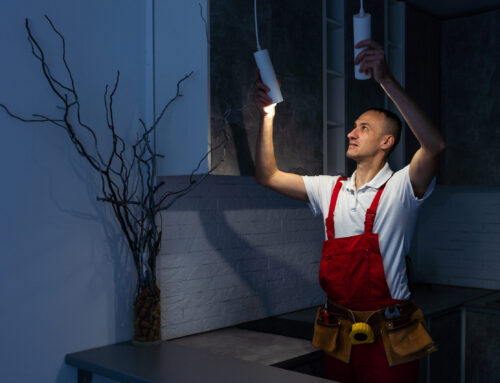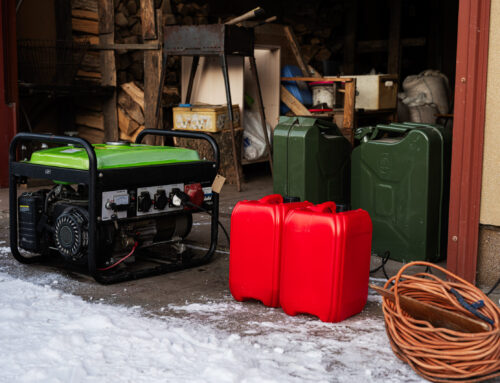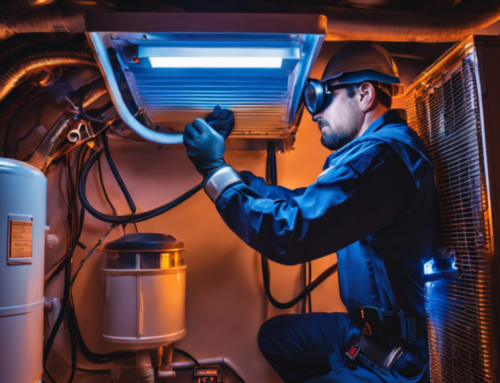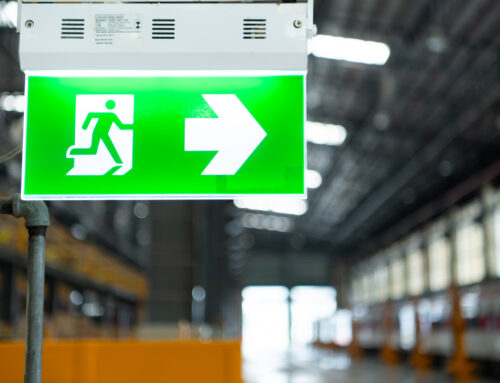Just a few weeks ago, we received an emergency call from a homeowner in Boca Raton’s Camino Gardens neighborhood. They had noticed a faint burning smell in their hallway, followed by their bedroom lights flickering non-stop. At first, they thought it was just a bulb going out—until a popping sound came from the wall. Our team arrived promptly, shut down the main breaker, and discovered a melted wire connection that could have started a fire within hours.
Unfortunately, this situation isn’t unique. According to the National Fire Protection Association (NFPA), electrical failures cause over 46,000 house fires in the U.S. each year, resulting in billions in property damage. In most of these cases, the homeowners had seen warning signs—but didn’t realize they required emergency electrical maintenance.
Whether you’re a homeowner in Boca Falls or run a business near Mizner Park, knowing when to call for emergency help can make the difference between a small repair and a major disaster. In this guide, we’ll break down 11 dangerous situations that signal it’s time to call a professional—immediately.
What Is Emergency Electrical Maintenance?
Before we go into the red flags, let’s take a moment to understand what emergency electrical maintenance really means. Unlike routine tune-ups or planned upgrades, this type of service is urgent, reactive, and often performed under time pressure to avoid serious safety risks.
Emergency maintenance involves troubleshooting and repairing electrical issues that pose an immediate threat to people, property, or equipment. It’s not something you can delay or handle with DIY fixes.
Why It Matters
Ignoring serious electrical problems can lead to:
- House fires or equipment damage
- Total power outages
- Code violations and insurance issues
- Danger to family, employees, or tenants
Here are the 11 most dangerous times you’ll need emergency electrical maintenance in Boca Raton.
1. You Smell Burning Plastic or Smoke Indoors
This is one of the most critical signs that something is dangerously wrong. If you detect a burning smell with no visible source, especially near outlets or your panel, it could mean wires are overheating or melting behind your walls.
Why It’s an Emergency
Overheated wires can ignite insulation or nearby materials, creating a fast-moving fire that starts silently and spreads quickly.
What to Do
- Shut off power at the main breaker if safe
- Evacuate the area if the smell worsens
- Call a licensed emergency electrician immediately
2. Your Circuit Breaker Keeps Tripping
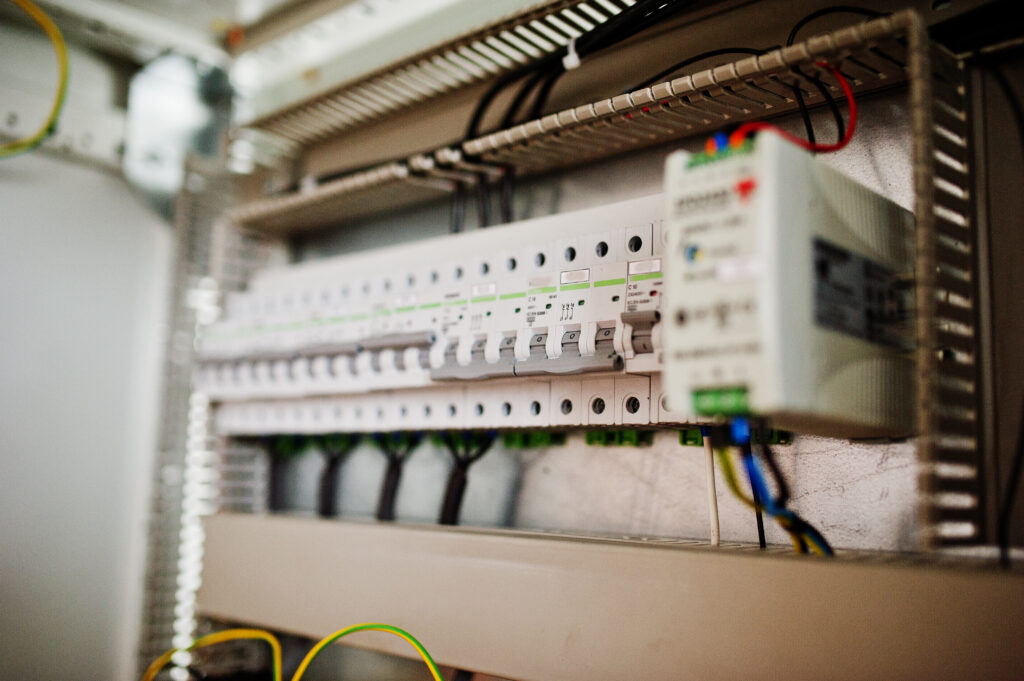
An occasional breaker trip is normal. But if it happens repeatedly, it could mean a serious problem with your wiring, load capacity, or appliances.
What’s Going On?
The breaker may be protecting you from a short circuit or ground fault, both of which can cause shock or fire if ignored.
What to Do
- Stop resetting the breaker repeatedly
- Unplug major appliances from the circuit
- Call a professional to inspect and test the circuit
- You See Sparks from an Outlet or Switch
Sparking when plugging or unplugging devices isn’t normal and may indicate loose connections, corrosion, or worn wiring.
Why This Is Serious
Sparks can turn into electrical arcs, which generate extreme heat and can quickly ignite surrounding materials.
What to Do
- Avoid using the outlet
- Don’t plug in any more devices
- Call for emergency repairs before it escalates
4. Your Power Goes Out After a Storm—But Only in Your Home
In Boca Raton, storms are common, but if your home or business is the only one without power, it’s likely an internal electrical issue.
Why It Matters
Storms often cause surge damage or water intrusion, which can destroy wiring, outlets, and breakers.
What to Do
- Do not touch outdoor panels or wires
- Avoid wet areas near outlets or appliances
- Call an emergency electrician to inspect your system
5. Your Breaker Panel Is Buzzing, Clicking, or Humming
Breaker panels should operate silently. Any buzzing, clicking, or humming noise may be a sign of electrical arcing or overload inside the panel.
The Risk
Arcing is extremely dangerous—it creates intense heat that can melt wires, damage breakers, and potentially start a fire.
What to Do
- Don’t open or touch the panel
- Cut power to the house if you can
- Call a licensed electrician right away
6. Lights Flicker or Dim Randomly Throughout the Home
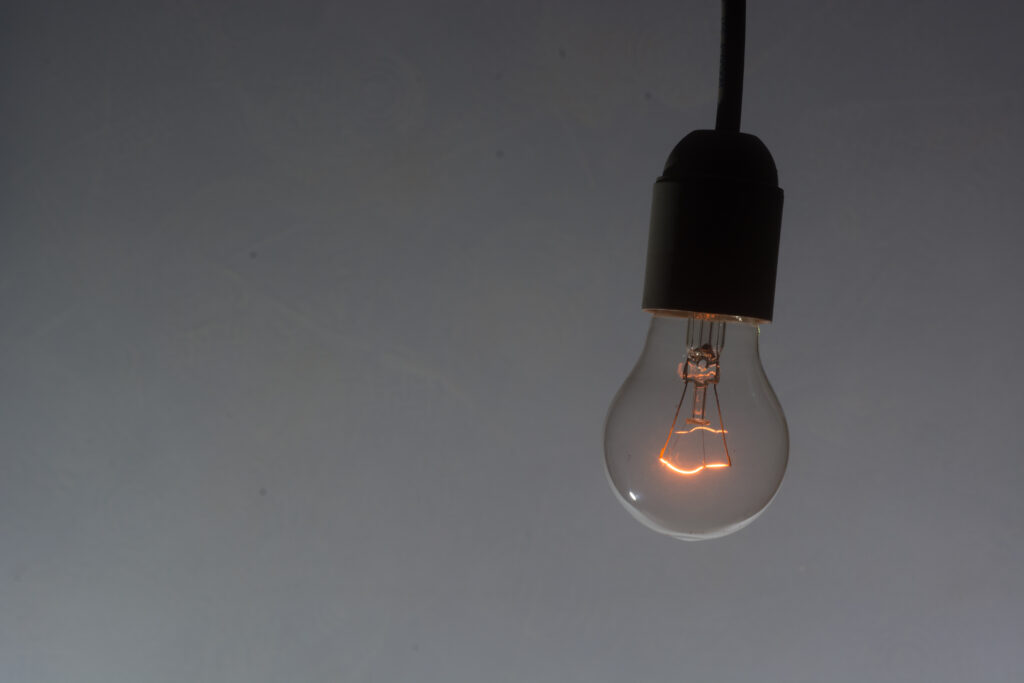
Flickering lights aren’t just annoying—they’re often the first sign of loose wiring, panel issues, or overloaded circuits.
Why It’s More Than a Nuisance
Inconsistent voltage flow can damage appliances, lead to power loss, or increase fire risk over time.
What to Do
- Note where and when the flickering occurs
- Avoid running high-power devices simultaneously
- Call for an electrical system inspection
7. You Feel a Shock When Touching a Device
A mild shock or tingle from an appliance or switch means electricity is leaking through improper grounding or faulty connections.
Why It’s Dangerous
Even a small shock can signal a wiring fault, which could lead to electrocution if left unchecked.
What to Do
- Stop using the device immediately
- Turn off the circuit it’s connected to
- Schedule emergency electrical maintenance
8. Your Outlets Are Warm or Show Discoloration
Outlets should never feel warm to the touch or look burned, blackened, or melted. These are signs of internal overheating.
The Hidden Danger
Heat inside outlets usually means wires are loose or arcing, which poses a serious fire hazard.
What to Do
- Don’t plug anything into the outlet
- Shut off the affected circuit
- Call for professional repairs immediately
9. You Hear Popping or Crackling From Behind Walls
Any noises from behind walls—especially popping, crackling, or sizzling—indicate live arcing or burning wires.
Why It’s Time to Act
These noises often mean old, frayed, or rodent-damaged wires are at risk of igniting.
What to Do
- Cut power at the main panel
- Evacuate if the sound continues
- Call an emergency electrician immediately
10. Commercial Lighting or Equipment Suddenly Fails
In commercial settings, a sudden loss of power to lighting, registers, POS systems, or HVAC could disrupt your entire business.
Why It’s Critical
Unexpected downtime can lead to lost revenue, failed safety inspections, or liability risks.
What to Do
- Don’t restart equipment manually
- Call a commercial electrician to diagnose the failure
- Document what systems were affected for insurance purposes
11. Essential Appliances or Systems Won’t Turn Back On

If your refrigerator, medical device, or security system won’t power back up after an outage, your circuits may be damaged or overloaded.
Why You Can’t Delay
Essential systems must be restored immediately to protect health, security, and food storage.
What to Do
- Avoid using temporary fixes like extension cords
- Call for emergency repair to restore power safely
- Ask about surge protection options to prevent future damage
Why Boca Raton Property Owners Need to Stay Alert
Homes and businesses in Boca Raton face unique risks:
For Homeowners:
- Older homes may have outdated wiring or panels
- Coastal humidity can corrode electrical components
- Hurricane season increases surge and outage risks
For Businesses:
- Electrical issues can cause downtime and lost revenue
- Code violations may lead to fines or shutdowns
- Emergency systems (lighting, alarms) must work reliably
Acting early can prevent serious consequences. Don’t wait for a spark or outage to take action.
How to Prevent Emergency Electrical Situations
The best emergency is one you never have to face. Here’s how to protect your home or business:
- Schedule inspections every 3–5 years (annually for businesses)
- Upgrade panels older than 25 years
- Install surge protection and GFCI outlets
- Label breakers so circuits are easy to shut off
- Know the warning signs—and act early
How Can Boca Electrical Works Help You?
At Boca Electrical Works, we know how fast electrical issues can escalate. That’s why we offer same-day and 24/7 emergency electrical maintenance to homes and businesses across Boca Raton.
Our expert team can help you with:
- Emergency outlet, switch, and panel repairs
- Electrical fire prevention and risk assessment
- Commercial and residential emergency response
- Surge protection, rewiring, and upgrades
- Honest pricing, fast service, and full licensing
Visit us: 123 NW 13th St Suite 214-09, Boca Raton, FL 33432
Call now: (561) 235-2513
Don’t wait for disaster to strike. If you suspect a problem, call Boca Electrical Works today—and let us protect your home or business before it’s too late.
Frequently Asked Questions
Can emergency electrical maintenance be covered by home insurance?
Yes, many policies cover electrical repairs if the damage is caused by a covered peril like a storm or fire—but it’s best to check your individual policy for details.
What’s the difference between emergency electrical repair and regular maintenance?
Emergency electrical repair is done to fix sudden, dangerous problems, while regular maintenance is scheduled to prevent those problems from happening in the first place.
How quickly can an emergency electrician arrive in Boca Raton?
In most cases, licensed electricians can arrive within 1 to 2 hours, depending on availability and location within the city.
Is it safe to use extension cords as a temporary fix during an electrical issue?
No, using extension cords as a substitute for damaged outlets or circuits can lead to overheating and increase the risk of fire.



